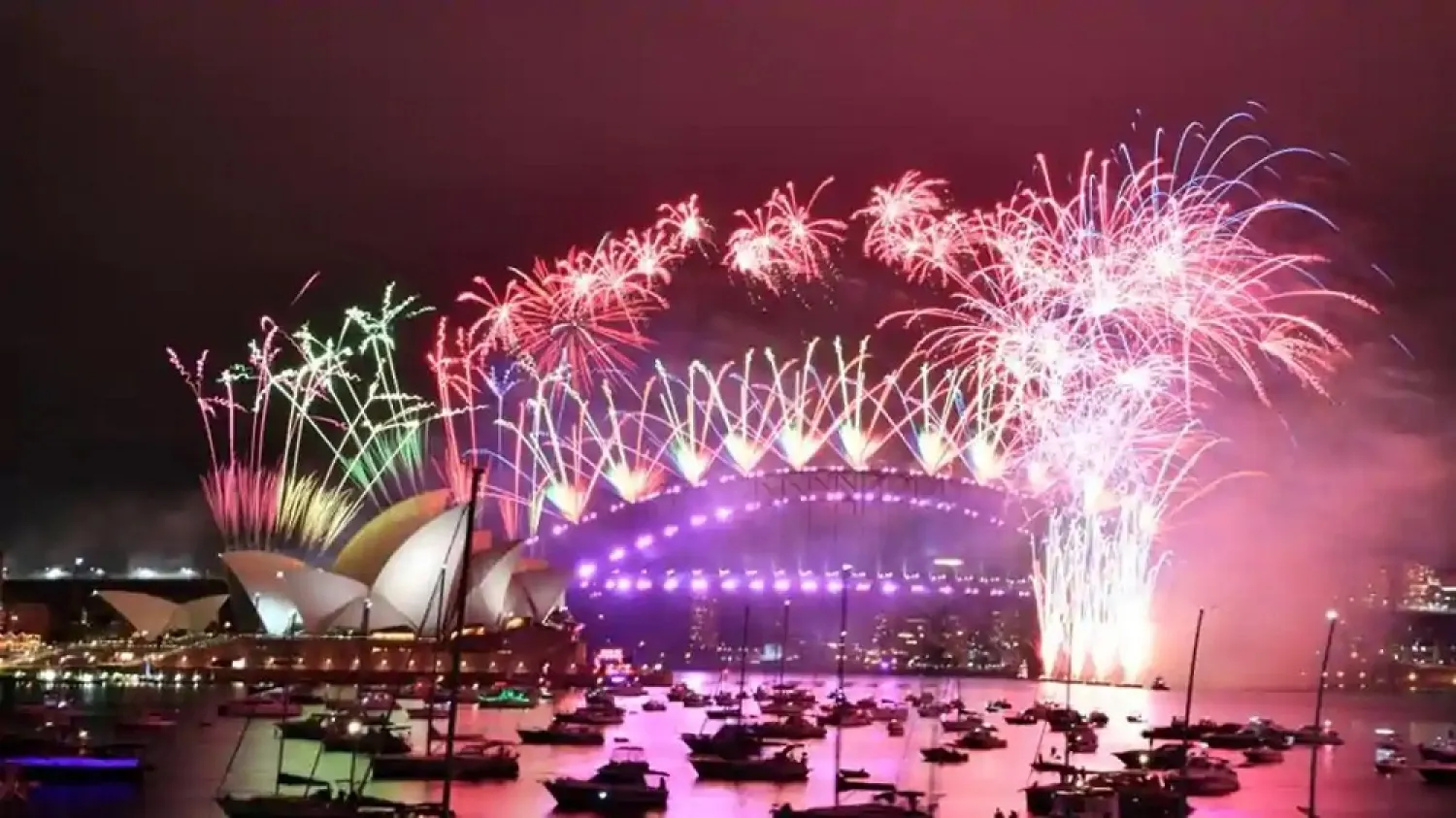Blue and gold fireworks soared into the sky above the Sydney Opera House as they do every New Year’s Eve, but the harbor below was a deserted ghost town, a fittingly creepy send-off for a year that will not be missed.
No light show was to illuminate Beijing from the top of the TV tower. The lions of London’s Trafalgar Square were barricaded off, as was Red Square in Moscow and Madrid’s Puerta del Sol. In Rome, crowds would not assemble in St Peter’s, the Pope would lead no Mass, and revelers would not make their yearly dive into the Tiber.
Good riddance, 2020. Hello, 2021.
Some cities planned, like Sydney, to launch fireworks over empty streets. Others, such as London and Singapore, just called their displays off. Paris, Rome and Istanbul were under curfew.
The New Year’s Eve countdown ball was set to drop on Broadway. But in place of hundreds of thousands of New Yorkers jammed shoulder-to-shoulder in Times Square, the audience would be a pre-selected group of nurses, doctors and other key workers, their families kept six feet apart in socially distanced pens.
With more than 1.7 million people dead and 82 million infected around the globe since last New Year’s Eve - yet hope that new vaccines can help tame the pandemic - the year ended unlike any other in memory. Angela Merkel, in her 16th New Year’s Eve address as German chancellor, said as much.
“I think I am not exaggerating when I say: never in the last 15 years have we found the old year so heavy. And never have we, despite all the worries and some skepticism, looked forward to the new one with so much hope.”
Germany banned the sale of fireworks to discourage crowds. Berlin police would “punish violators consistently”, authorities said.
Safety a priority
In the Chinese city of Wuhan, where the pandemic originated a year ago, thousands were expected to gather at landmarks across the city center to count down to 2021. Some said they were being cautious, but not particularly worried.
“Safety is the priority,” said Wuhan resident Wang Xuemei, 23, a teacher.
In Australia, where Sydney’s fireworks annually serve as the world’s first big visual display of the new year, gatherings were banned and internal borders shut. Most people were barred from Sydney’s downtown.
“What a hell of a year it’s been,” said Gladys Berejiklian, premier of New South Wales state, which includes Sydney. “Hopefully 2021 will be easier on all of us.”
The virus did not stop North Korea from staging its celebration in Pyongyang. State media showed revelers in face masks filling the main square for a concert and fireworks.
But in Madrid’s Puerta del Sol, where Spaniards typically count down to midnight by stuffing grapes into their mouths at each clock strike, police dragged barriers to keep people out. Jose Angel Balsa, a 61-year-old retiree, said he would spend the evening “with family, just the four of us at home, holding lots of video calls and hoping for this to end as soon as possible.”
In Britain, under ever tighter restrictions to fight a new, more contagious variant of the virus, official billboards instruct the public to “see in the New Year safely at home”.
Italy’s bars and restaurants were closed, and a curfew imposed for 10 pm. Pope Francis cancelled plans to lead New Year’s Eve and New Year’s Day services because of a flare-up of his sciatica, the Vatican said.
At “A la Ville de Rodez”, an upmarket delicatessen in Paris, manager Brice Tapon sent customers home with packages of foie gras, truffles and pate for groups of two or three. Rules forbid more than six adults to gather around the dinner table.
One of the customers, Anne Caplin, said she would “stuff myself with foie gras and all this food.”
“And I’ll stay home.”









